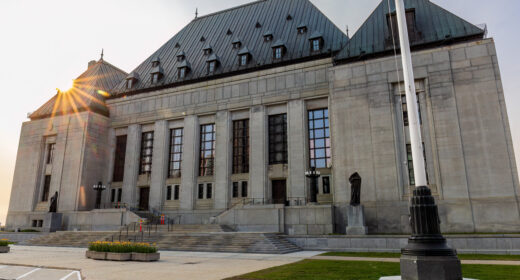With e-commerce exploding over the course of the pandemic – nearly doubling between February and March 2020 alone – side hustles have been on the rise.
Nelligan Law is grateful for the contribution of articling student Sophie Ryder in writing this blog post.
Add the soaring cost of living, remote work, and social transformations driven by COVID-19, and off-hours entrepreneurship is trending. It may be a common belief that what you create is your own work and intellectual property (IP), but if you have a day job there is the possibility that your employer could lay claim to the intellectual property flowing from your outside endeavors.
Simply put, IP can be anything – inventions, music, art, plays – created by the human mind. Intellectual property is the overarching term for rights that flow from these intangible ideas, with different categories of rights and protections contained within it. For example, a copyright will help keep your ownership over artistic creations (like songs or videos). This is different from a patent, which helps to protect inventions (like creating a new tool).
Why is IP important?
So, why does any of this matter? That app you’re working on, or Etsy account may be of zero interest to your employer, until it’s not. If that side-of-your-desk idea suddenly works out, your employer could take an interest in your creation. Your employer could attempt to gain the intellectual property rights for your creation, drastically shifting ownership (and revenue) of your work.
The Copyright Act and The Industrial Design Act both touch on the topic of employment and IP. Sub section 13(3) the Copyright Act sets out the requirements of a written agreement that allow the creator to maintain ownership if said creation is in the course of employment, except in specific instances. Subsection 12(1) of the Industrial Design Act states that the author of the design is the owner unless they have done so for another person, in which case it is possible the other person is the owner.
The nature of the employment relationship may create different entitlements for both the employee and the employer. The courts will examine the relationship itself not only the title given to the worker by the employer. Some different employment relationships include a consultant, an in/dependent contractor, and an employee. The lines of ‘employment’ can be more blurred through these forms of contractual and gig work.
Comstock Canada et al. v Electec Ltd. and Hyde examined an employee, Hyde, who had his own business outside his employment with Comstock. Within his own business, Hyde created a system for interconnecting light fixtures that he patented. In determining whether the invention should rest with Hyde’s employer, Comstock, the Court looked at the purpose of Hyde’s employment: was his employment for the purpose of inventing or innovating? Was the invention created within the scope of that employment? The Court dismissed Comstock’s action and determined that invention was not created within the scope of Hyde’s employment with the company. The Court reached this conclusion through a close look at the relationship and any implied agreements between the parties.
The best way to avoid issues such as those described in Comstock is to have an explicit written IP or employment agreement. This can can help to avoid the murky waters of determining what was and wasn’t invented in the scope of employment.
It’s important to note that Comstock is a private sector case; those employed in the public sector have specific – and often more onerous – obligations when attempting to register patents and other issues related to intellectual property.
Non-compete
Non-compete clauses refer to contractual language that restrict employees from entering into a similar profession or doing similar work that can be considered in competition with a former employer.
Effective October 25, 2021, Ontario employers are prohibited from entering into an employment contract or any other form of agreement that include non- compete clauses. There are two major exceptions for this, the first dealing with lease/sale of a business and the second if that person is an executive. The full list of what counts as an executive can be found here. However, in Parekh et al v. Schecter et al the Ontario Superior Court stated that non-compete agreements prior to this new legislation remain enforceable. Importantly, this new legislation does not prohibit non-solicit and non-disclosure agreements. A non-solicit agreement prohibits the employee form actively pursuing clients, vendors, business partners etc. during their employment relationship or after it ends. A non-disclosure agreement prohibits an employee from sharing confidential company information and processes.
Key take-aways
It can be difficult to discern where inspiration comes from; in developing an original idea, employees typically have no intention of violating their employment contract or relinquishing a valuable invention.
An explicit written agreement which protects IP rights outside the scope of your employment can go a long way in reducing these risks. It is important to understand the terms of your employment contract to understand what you may need to consider when setting up a business outside your day job. Sometimes, disclosing your side hustle idea to your employer and getting the employer’s blessing could be your best option. If you are unsure about the terms of your current employment or are exploring a new business idea, contact our Intellectual Property Group or Employment Law Group for assistance.




